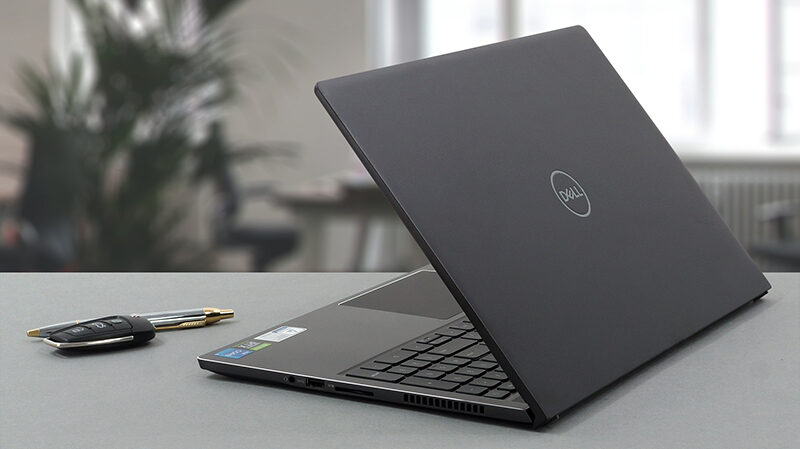Having trouble choosing the ideal Dell computer? This guide provides insights and tips on picking the perfect Dell computer that aligns with your specific needs. Consider factors such as performance, form factor, storage, display, and budget to make an informed decision. Find the Dell computer that suits your requirements and enhances your computing experience.
How to Pick the Right Dell Computer for Your Needs
- Assess Your Needs: Determine how you plan to use the computer. Are you a casual user, a student, a professional, or a gamer? Consider factors like processing power, memory, storage capacity, and graphics capabilities based on your intended usage.
- Consider Form Factors: Dell offers a range of form factors, including desktops, laptops, 2-in-1s, and all-in-ones. Evaluate your mobility needs, workspace constraints, and preferred user experience to select the most suitable form factor.
- Determine Performance Requirements: Identify the level of performance you require. Look at the processor options, such as Intel Core i3, i5, i7, or i9, and the RAM capacity. Higher-end processors and ample RAM are essential for demanding tasks like video editing or gaming.
- Storage Options: Assess your storage needs based on the type and volume of data you plan to store. Decide between traditional hard drives (HDDs) and solid-state drives (SSDs) for faster performance and enhanced reliability.
- Display Considerations: For laptops and all-in-ones, the display quality is crucial. Look for features like screen size, resolution (Full HD, 4K), color accuracy, and touchscreen capabilities, depending on your preferences and usage scenarios.
- Graphics Capability: Gamers, designers, and professionals working with graphics-intensive applications should consider dedicated graphics cards for optimal performance. Dell offers a range of options, including NVIDIA GeForce and AMD Radeon.
- Connectivity and Ports: Assess your connectivity requirements. Ensure the Dell computer has the necessary ports for your peripherals, such as USB, HDMI, Thunderbolt, and audio jacks. Additionally, consider wireless connectivity options like Wi-Fi and Bluetooth.
- Battery Life (for Laptops): If you opt for a Dell laptop, evaluate the battery life based on your usage patterns and mobility needs. Longer battery life is beneficial for frequent travelers or individuals who require extended unplugged usage.
- Budget Considerations: Set a budget range and find a Dell computer that offers the best balance between performance and affordability. Consider refurbished or previous-generation models if you have budget constraints.
- Read Reviews and Compare: Before finalizing your decision, read reviews, watch video reviews, and compare different Dell models to gather insights from other users and experts. This will help you make an informed decision.
By following these steps, you can confidently select the right Dell computer that aligns with your needs, whether it’s for work, entertainment, or personal use.
Getting Help With Your Dell Computer
For efficient resolution of issues with your Dell computer, it is advisable to visit an authorized service center where trained professionals can provide repairs or replacements as needed. To expedite the process, consider the following steps:
- Troubleshoot: If you encounter problems with a specific app or program, perform troubleshooting first. Utilize online resources like Google or YouTube to search for solutions. Often, a simple fix such as reinstalling the application can resolve the issue. Contacting the developer for further assistance is also an option.
- Contact Dell Support: If troubleshooting fails to resolve the problem and your computer still malfunctions, reach out to Dell for assistance. They have support channels available to address your concerns. Dell’s technicians may be able to repair the computer or facilitate a replacement. Note that Dell offers limited warranties for specific computer models, and extended warranties may be available. Keep in mind that warranty coverage might not extend to certain components like the hard drive or RAM. In cases of major issues, seeking professional help from Dell is recommended instead of attempting self-repair.
By following the advice provided in this article, pay attention to the software you require, prioritize essential features, and know the process for contacting Dell customer service. These considerations will aid you in selecting the appropriate Dell computer to meet your specific needs.
Useful Tips when buying Dell Computer
When buying a Dell computer, consider the following user tips to ensure a successful purchase:
- Determine Your Needs: Assess your specific requirements. Consider factors such as intended usage (work, gaming, multimedia), performance expectations, portability, and budget. Knowing your needs will help you choose the right Dell computer model.
- Research and Compare Models: Explore the range of Dell computers available, including desktops, laptops, 2-in-1s, and all-in-ones. Compare features, specifications, and prices to find the model that best matches your requirements.
- Processor and Performance: Consider the processor type and speed, as it affects overall performance. Dell offers various options, such as Intel Core i3, i5, i7, and i9, or AMD Ryzen processors. Higher-end processors are suitable for demanding tasks like gaming, video editing, or running resource-intensive software.
- RAM and Storage: Check the RAM capacity to ensure smooth multitasking and sufficient memory for your needs. Consider storage options, such as solid-state drives (SSDs) for faster performance or traditional hard disk drives (HDDs) for larger storage capacities. A combination of both (SSD for the operating system and frequently used programs, HDD for data storage) can provide a balance.
- Graphics and Display: If you require high-quality graphics for gaming, video editing, or design work, opt for a Dell computer with a dedicated graphics card, such as NVIDIA GeForce or AMD Radeon. Additionally, assess the display quality in terms of size, resolution (Full HD, 4K), color accuracy, and touchscreen capability, based on your preferences.
- Connectivity and Ports: Consider the availability of USB ports (Type-A and Type-C), HDMI, Thunderbolt, audio jacks, and SD card slots. Ensure the Dell computer has the necessary connectivity options to connect your peripherals and external devices.
- Battery Life (for Laptops): If you choose a Dell laptop, check the battery life specification. Longer battery life is advantageous for those who require extended usage without being plugged in, such as frequent travelers or students.
- Warranty and Support: Review the warranty coverage provided by Dell. Understand the terms, duration, and what components are covered. Additionally, familiarize yourself with Dell’s customer support channels and their reputation for providing reliable and timely assistance.
- Read Reviews: Before making a final decision, read reviews from trusted sources and user feedback on Dell computers you’re interested in. Real-world experiences can offer insights into performance, reliability, and overall customer satisfaction.
- Consider Value for Money: Evaluate the price-to-performance ratio of the Dell computer you’re considering. Compare the features and specifications with similar models from other brands to ensure you’re getting the best value for your investment.
- YOU MAY ALSO LIKE>>> Pinterest Pins | How to Design Pinterest Pins with Corel Draw







